Climate change, inequality, and sustainable development
November 02 , 2021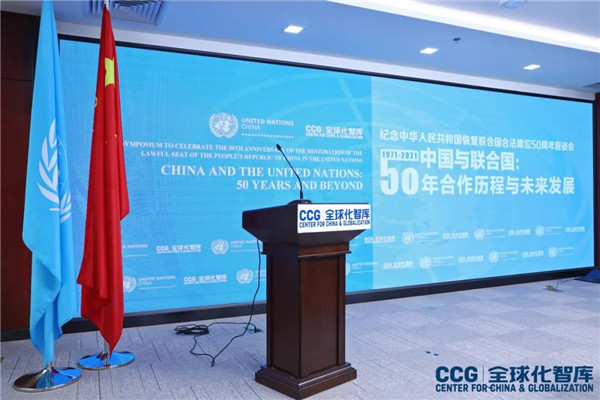
Beijing, 2 November 2021 – The United Nations in China and the Center for China and Globalization (CCG) co-hosted a symposium to celebrate the 50th Anniversary of the restoration of the lawful seat of the People’s Republic of China in the UN today in Beijing.
This year marks 50 years since the General Assembly adopted Resolution 2758, deciding to “restore all its rights to the People’s Republic of China and to recognize the representatives of its Government as the only legitimate representatives of China in the United Nations.”
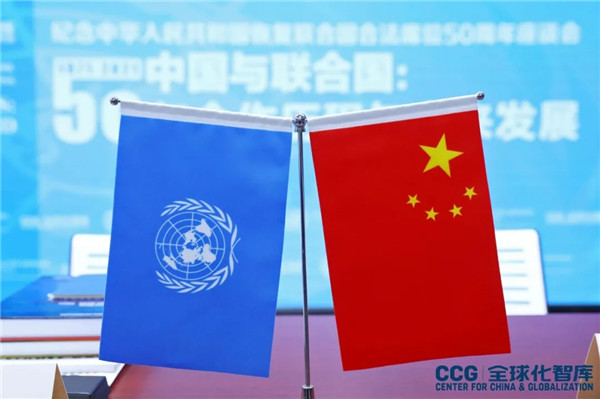
“In the decades since, China has become an increasingly important contributor to the work of the Organization and a major pillar of international cooperation,” said UN Secretary-General António Guterres on the occasion.
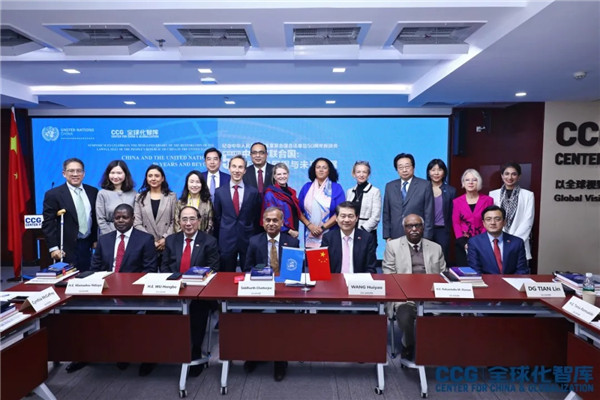
Since the introduction of reform and opening-up in 1978, China has experienced remarkable economic and social transformations, rising to become the world’s second-largest economy and an upper-middle-income country over just four decades.
With China and the world now striving to recover from the impact of the COVID-19 pandemic and “build back better” in the Decade of Action to achieve the SDGs, leading experts from government, international organizations, think tanks, and academia met today to discuss the road ahead.
Participants to the symposium took part in two roundtable discussions entitled “Towards a new development model for common prosperity” and “Towards 2030 and 2060: sustainable development and climate”.
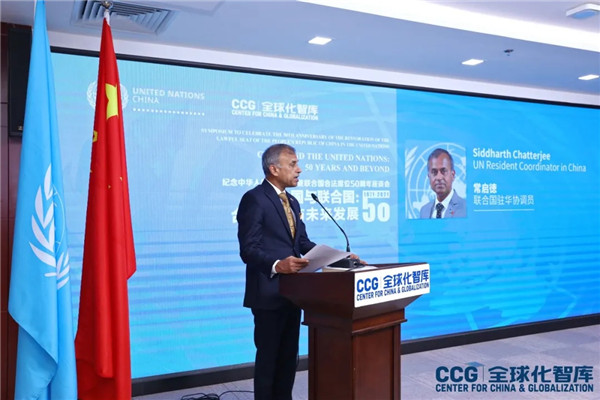
“The UN has been a trusted development partner of China, with the first UN office in China opened back in 1979. In the four decades following that year, the role of the UN in China has shifted from that of a traditional donor to that of a partner providing technical expertise and support, both within and beyond its national boundaries, including in its activities under the framework of South-South Cooperation,” said UN Resident Coordinator Siddharth Chatterjee in his opening remarks at the symposium.
“As we celebrate the great progress achieved, we also need to focus on the big challenges ahead. Climate change poses an existentialist threat to humanity and inequality threatens progress towards the SDGs.”
Topics covered during these roundtable discussions also included the importance of rural development, childhood development, and biodiversity, and the role of public-private partnerships and international development cooperation, with a particular focus on the China-Africa relationship.
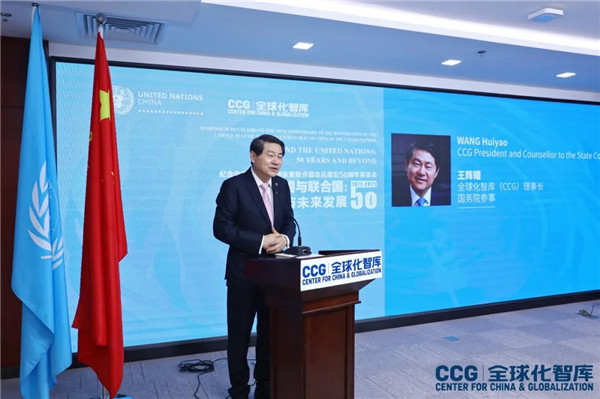
“50 years in, amid constant changes and shifts in the global context, China’s participation to the UN system has made significant advancements; improved its status in the international community; contributed to global unity and initiatives with resilience. It has been a story of changemaking,” said President of CCG Wang Huiyao.
“Facing unprecedented changes and challenges in today’s world owing to the pandemic, climate change, widening inequalities, the rise of populism and deglobalization, the reinvigoration of multilateralism is urgently needed. China and the UN are the forefront of this endeavour.”
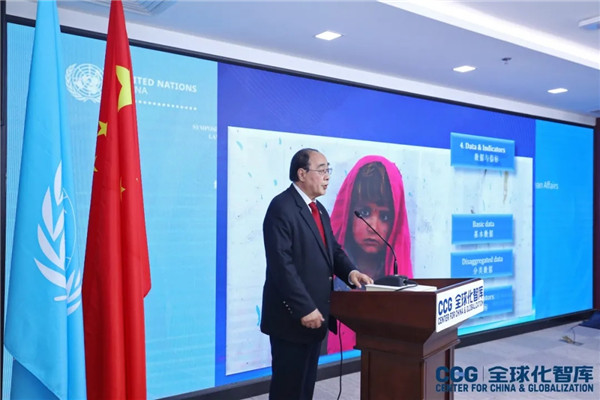
Wu Hongbo, Special Representative of the Government of China on European Affairs
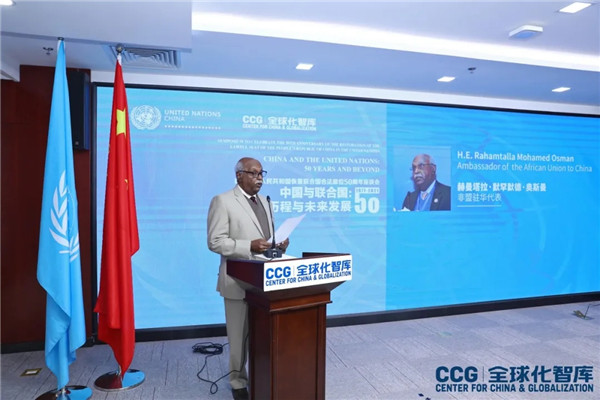
Rahamtalla Mohammed Osman, Ambassador of the African Union to China, Mamadou Ndiaye, Ambassador of Senegal to China
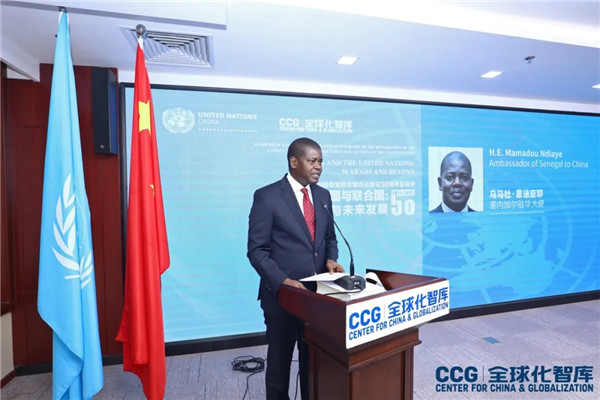
Mamadou Ndiaye, Ambassador of Senegal to China
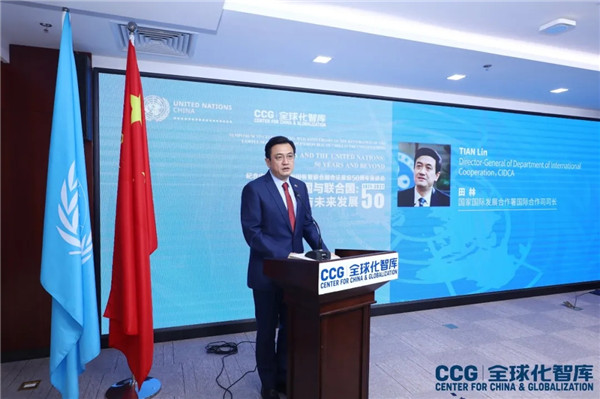
Tian Lin, Director-General of the International Department of the China International Development Cooperation Agency
The symposium also featured remarks from leading figures including Wu Hongbo, Special Representative of the Government of China on European Affairs, Rahamtalla Mohammed Osman, Ambassador of the African Union to China, Mamadou Ndiaye, Ambassador of Senegal to China and Tian Lin, Director-General of the International Department of the China International Development Cooperation Agency.
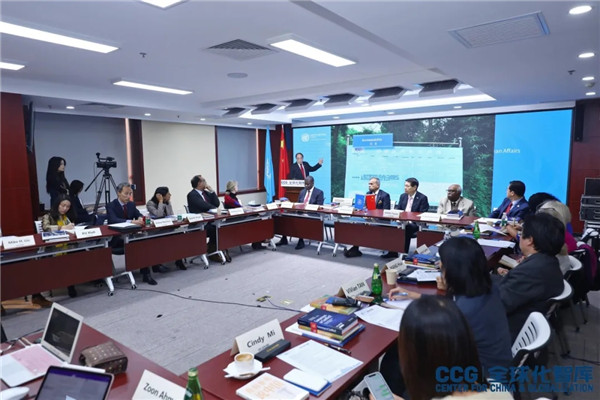
The UN in China and CCG wish to thank today’s participants for the constructive discussions, and both look forward to furthering cooperation in future on shared priorities.






